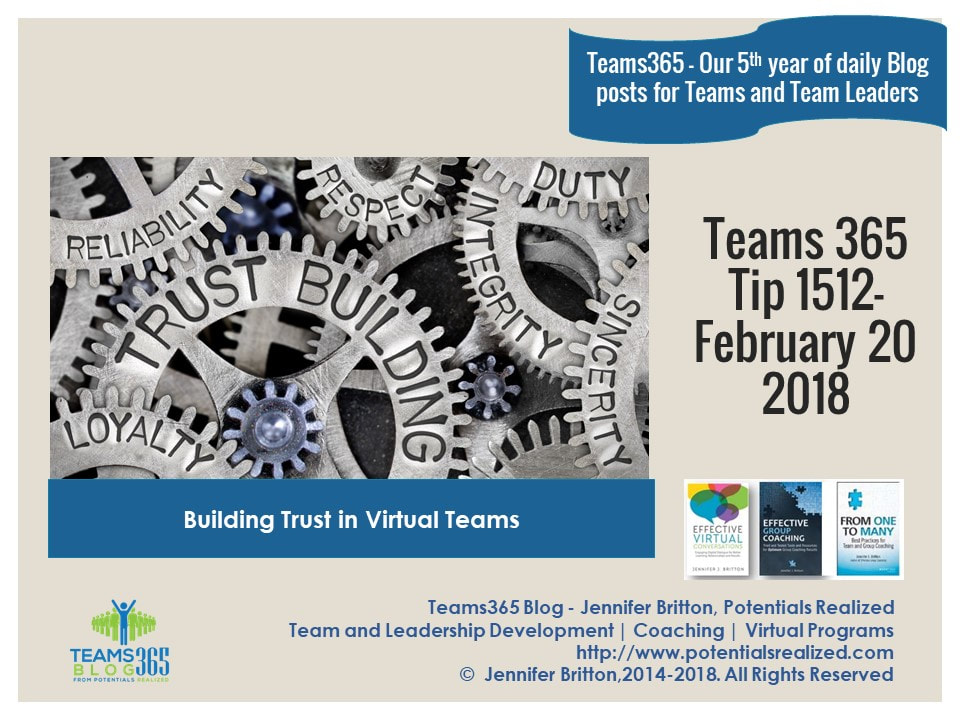What can we do to build trust in virtual teams? Here are a few ideas:
Trust doesn’t just form. Be intentional in creating opportunities for team members to meet and get to know each other. This may include creating both formal and informal opportunities. On the formal stage, team members may be paired with others on a quarterly basis, or in an informal sense, virtual teams may make a point of coming together for a monthly meeting
Share what you are working on – Unlike the opportunity to rub shoulders every day, out of sight means out of sight. Being more focused and proactive in sharing your work is an important part of the process. What can you do to share what you are working on with others? Do you dedicate part of your monthly planning to this? Do you each take photos of key projects and share these internally to give a visual? Consider what mechanisms you have to share what you are working on.
Talk about your working preferences – in an intact face to face team it is possible to learn more about each other every day, through the conversations we have, and how people show up at work. In a virtual team, getting to know more about each other’s preferences and styles can be more difficult, especially as we may not see each other. Our styles and preferences influence how we communicate, make decisions, innovate, approach conflict and provide feedback. As a team member what do you know about each other? What are the questions you’d like to ask? What notes would you like to compare about your preferences? One area we do a lot of work in is around this area. From offering the Everything DisC to working with partners to offer the Hermann-Brain Development Index, contact us to explore how we could support your team.
Map out resources (see team tool post) – One of the team tools I shared last week was the Relationship mapping tool. You can apply the same principles to resources, helping people locate and identify resources available in the network. Spend some time this month mapping out the resources (which might include human resources, financial, material, technical etc).
Provide opportunities for issues to be raised and discussed. In today’s business context most team members are running hard daily. Unless time is created for a pause we usually won’t take one. How are you as a team creating that pause to raise and discuss issues. Doing this before issues get magnified is essential. It’s also important to note that not every one on the team may be comfortable with raising issues, so one-on-ones will continue to be important. If conflicts do emerge be proactive, and ensure people have the space and time and tools to work through disagreements.
Be sure to check out this past weekend's Teams365 video which highlighted different ways team members can build, and destroy, trust. You'll find that video here.
Best wishes,
Jennifer

 RSS Feed
RSS Feed





